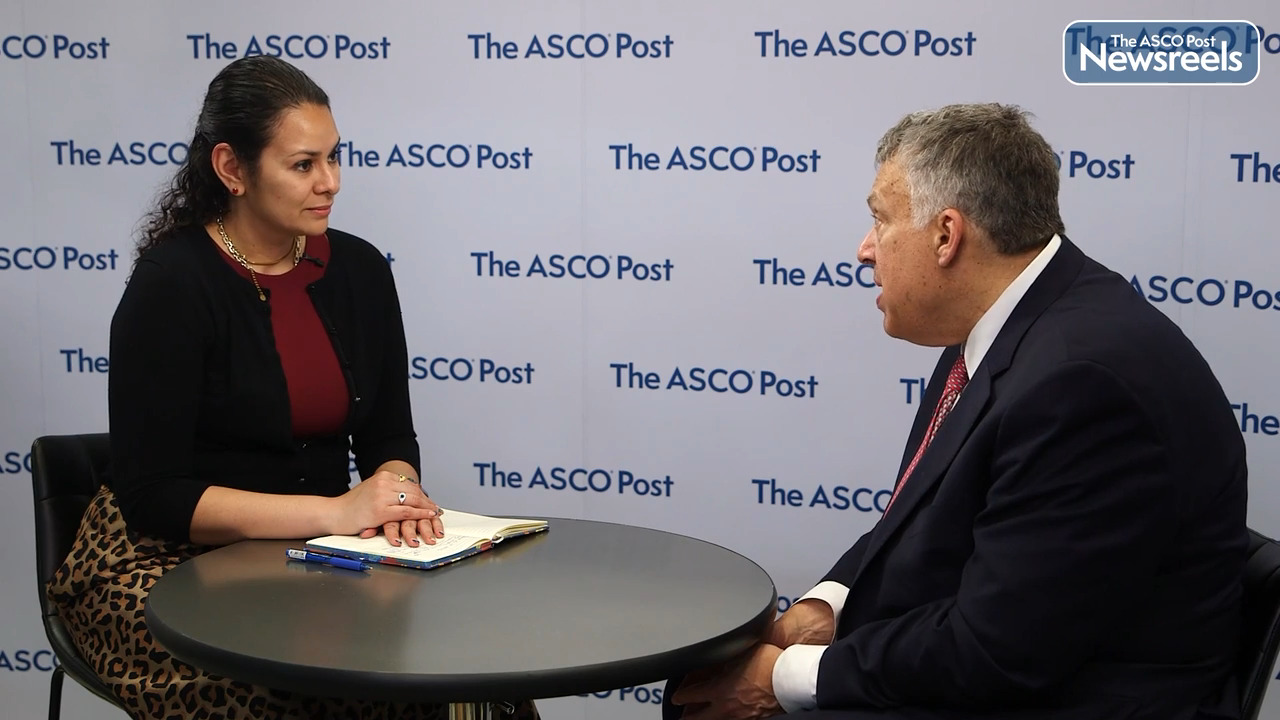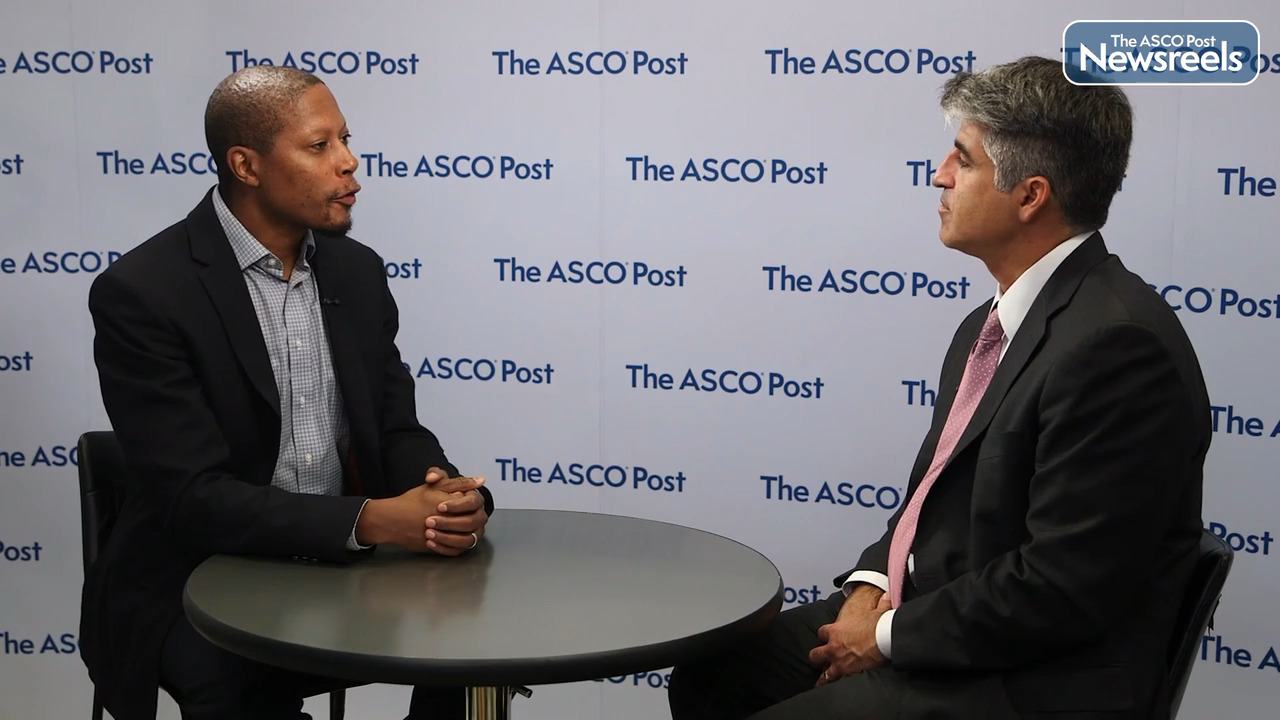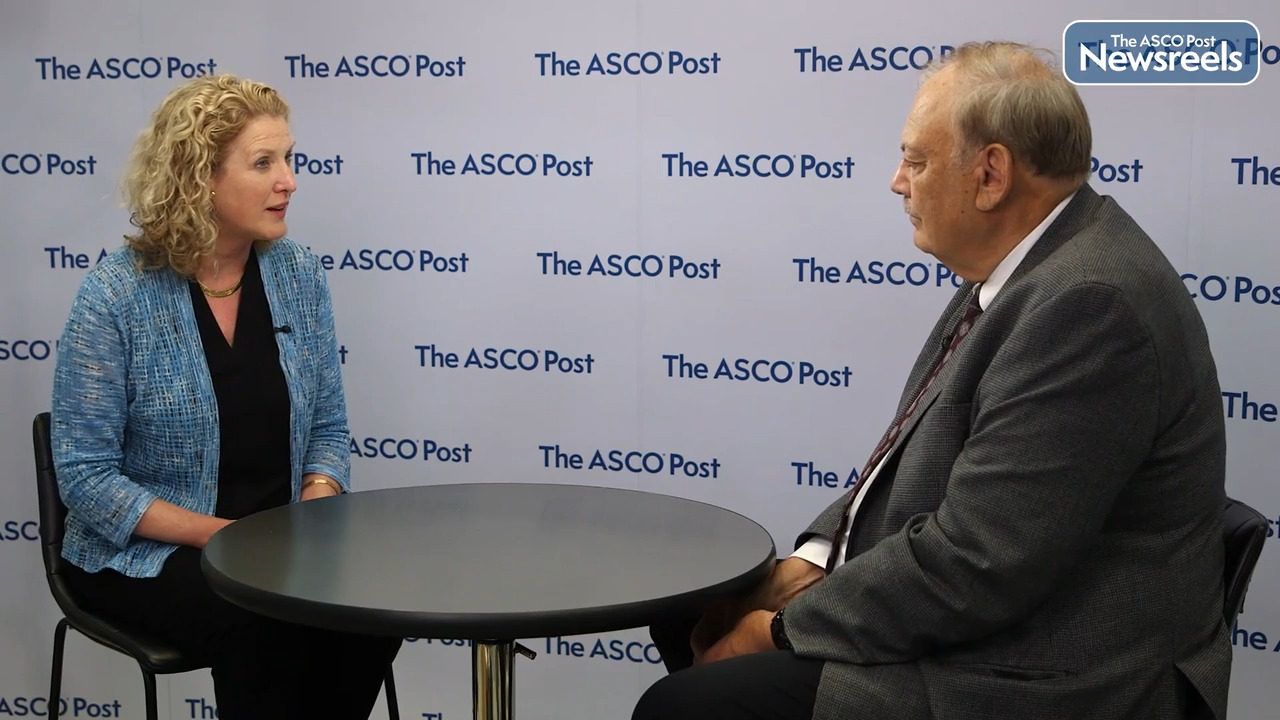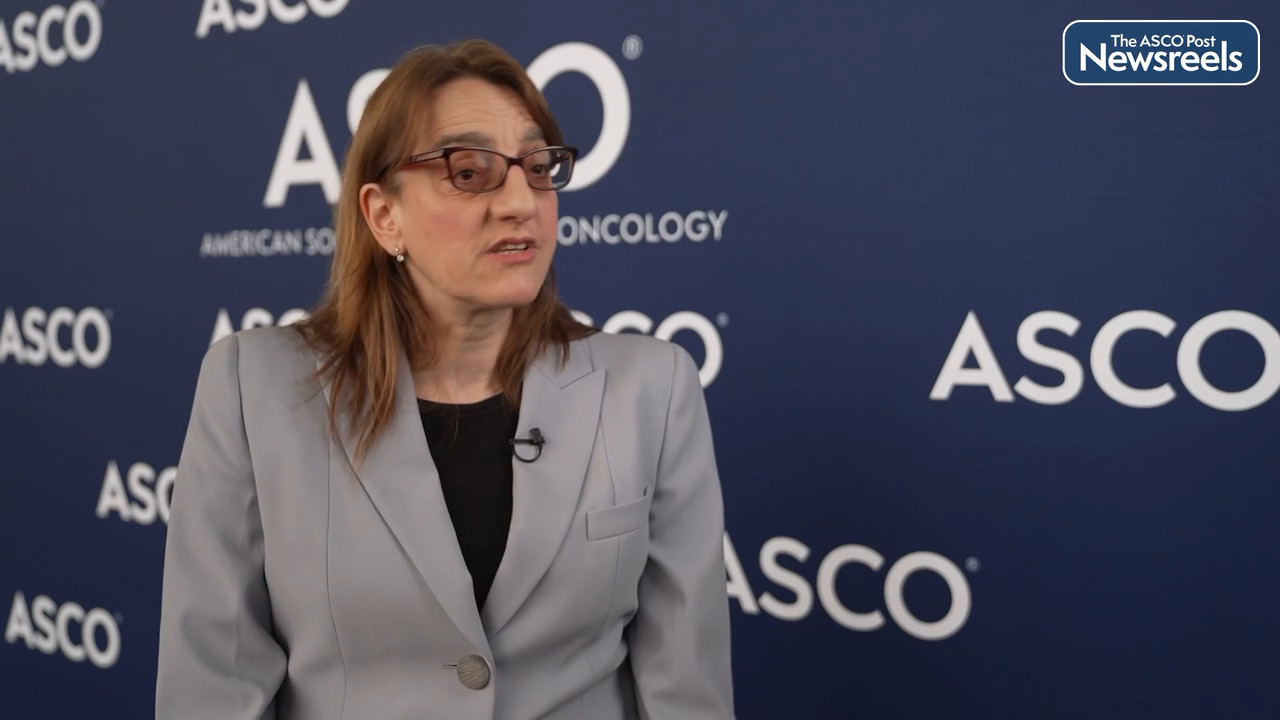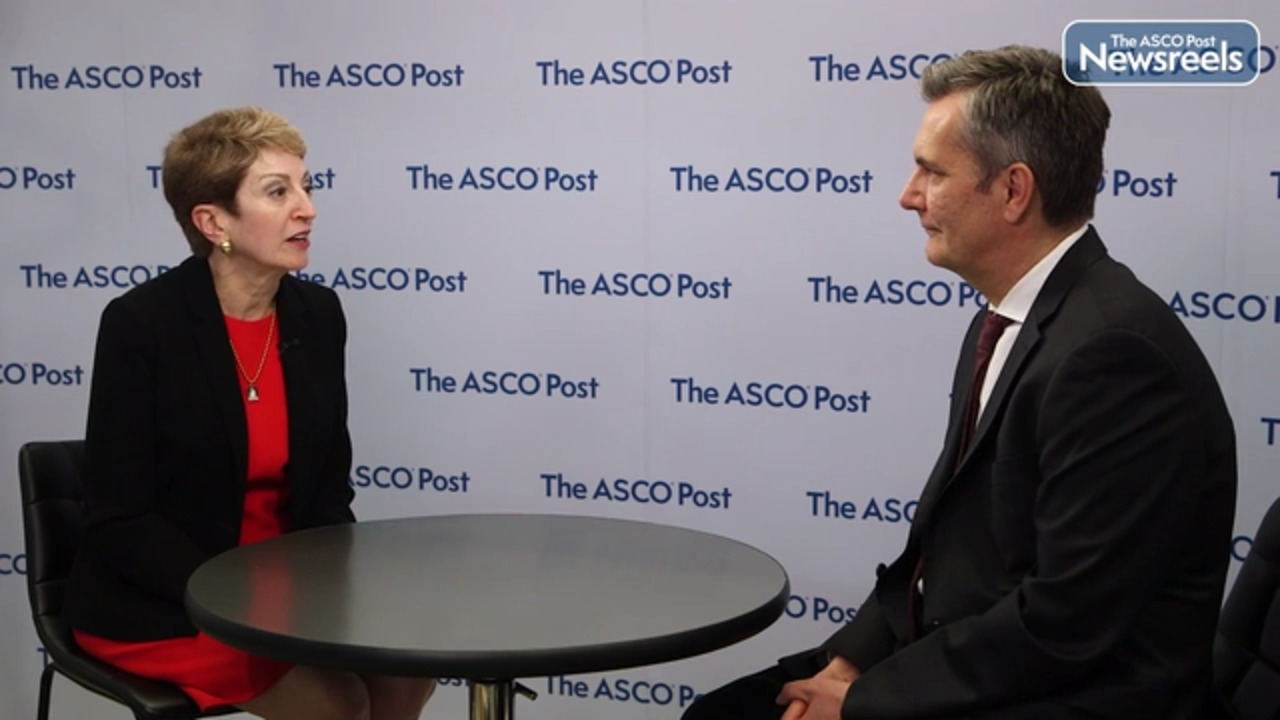Transcript
Disclaimer: This video transcript has not been proofread or edited and may contain errors.
Enrique Grande, MD:
We are here presenting the post-hoc analysis of the IMvigor130 trial about the overall survival according to the response to the induction chemotherapy, based on platinum, that the patient received from this phase-3 trial.
As a brief reminder, the IMvigor130 trial was a phase-3 trial, in first-line metastatic urothelial carcinoma patients that were randomized into one of these three arms: chemotherapy, platinum-based chemotherapy, cis/gem, carbo/gem, standard of care at that time; or chemotherapy plus atezolizumab; or another third arm with atezolizumab, the PD-L1 inhibitor, as a single agent.
In this post-hoc analysis, we are as considering those patients who were randomized to one of the arms with chemotherapy. They should have received at least four cycles of chemotherapy, of platinum-based chemotherapy. They should have observed a clinical benefit during this induction chemotherapy. It means at least complete response, or partial response, or a stable disease for up to six months on treatment. And they should have also been treated with at least one cycle of maintenance therapy, either with atezolizumab or with placebo matching maintenance therapy.
In terms of the overall survival that we got here, the overall survival was counting since week 18, the supposed day one, cycle six of the induction chemotherapy.
We analyzed in a retrospective way, two populations: those with a clinical benefit, and those patients in the intention to treat population that progressed during induction chemotherapy.
Of course, the prognosis was completely different in between these two populations. What were the main outcomes from this post-hoc analysis? The main outcomes that we observed is that unfortunately, we didn't observe significant difference, clinically speaking and statistically speaking, for those patients we received the combination of chemo plus atezo followed by atezo maintenance, versus those patients in terms of survival that received only chemotherapy.
Hazard ratio was 0.84, and the median overall survival in the combination arm followed by the maintenance strategy was 20.5 months, versus 19.6 months in the standard arm.
Those patients with the better prognosis, so it means those patients treated with cisplatin, gemcitabine, plus atezolizumab, and those patients with PD-L1 positive expression, they have better prognosis than those patients treated with carbo or those patients with a PD-L1 negative expression in the tumor.
But if this is a matter of immunogenicity, we still don't know. We are working on that. The translational research is undergoing this sense. Maybe this is just a matter of prognosis.
Another important outcome. What happened in those patients who progressed during the induction chemotherapy? This is the subgroup of patients with the poorest prognosis. The median overall survival for these patients progressing during chemo was only 3.3 months, despite more than 40% of the patients received subsequent lines of treatment, most of them immunotherapy or chemotherapy in the standard control arm.
So, there is a clear unmet clinical need on this particular scenario, and it merits to think about if it deserves to give any systemic treatment options for these patients, or at least the current systemic options for these patients that we have so far.
Last thing is that the use of enfortumab vedotin, or all their targeted agents like FDFR inhibitors, in this setting was negligible. Very few patients received that, so we cannot really extrapolate or make any conclusion about that. Thank you so much.
